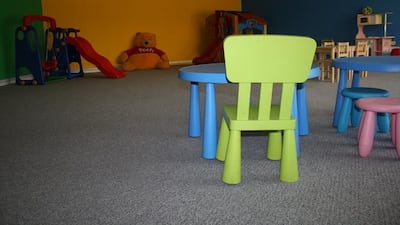The past couple of years have seen huge strides made in the field of child protection in the UAE. Wadeema's Law, or Federal Law number 3, was introduced in 2016. Named after an eight-year-old girl who died in tragic circumstances, it lays out the legal rights of all children in the UAE and is designed to protect them, from birth until the age of 18, from any kind of abuse, including physical, verbal and psychological abuse.
As an educator with more than 20 years' experience in working with vulnerable students in both the UK and the UAE, I believe the protection of children is everyone's responsibility. We need to be open to the possibility that mistreatment does happen and we have a moral responsibility to take care of our youth. Reporting cases of child mistreatment is an obligation for all members of the UAE community. As the African proverb goes, it takes a village to raise a child and in the UAE, which is truly a global village, that message carries particular relevance.
Multiculturalism can lead to some challenges as the definition of abuse can differ from country to country. In some cultures, for example, physically disciplining your child is considered acceptable but in the UK where I am from, it is completely frowned upon. However, the protection of children is a universal obligation that is recognised by all cultures. It transcends geography and can unite rather than divide a community.
The law gives us clear guidelines on the protection of young people’s rights and preventing them from coming to any harm. We have been looking at educating parents and children on this front. In my new role, created to oversee the work of child protection units in 49 Gems schools in the UAE, overseeing 122,000 children, I will be holding workshops and training courses for both parents and educators. Parents are already incredibly supportive of our wellbeing work. Even before I began in September, we had a counselling service in every school, offering pupils the chance to drop in to talk about their concerns, whether that was exam stress or how to make friends. Those counsellors do intimate work with the children to build relationships and trust and encourage children to confide in them.
We don’t know who children will turn to when they need to talk about issues. The important thing is to have the framework there in place and court opportunities for a child to talk.
The community also plays a part in that. One of the greatest barriers to protecting our children effectively from abuse is the notion that one shouldn't get involved in other people's "business" or relationships. Some people might be afraid of reporting a case of suspected abuse but I always say, the question you should ask yourself is not "what if I am wrong?" but "what if I am right?" It is better to be held to account for something said and done in the best interests of a child, than to be held accountable for doing nothing.
The authorities are very supportive and trained to investigate cases thoroughly. There are also more ways to report cases to the Ministry of Interior, from the Hemayati app to calling its anonymous hotline.
The ministry established the Higher Committee for Child Protection in 2009 and its Child Protection Centre in 2011 to “undertake the role of developing, implementing and customising the initiatives and processes aiming at providing safety, security and protection for all children living in the UAE”. The committee plays a key role in maintaining safety “because achieving justice and protection for children is a shared responsibility”.
A campaign called “together to prevent child abuse” was also launched by the Abu Dhabi centre to raise awareness and educate parents and teachers via seminars, courses and a media campaign on the variety of forms of child abuse – from neglect to physical, emotional and sexual abuse – as well as ways to prevent it.
And in 2017, Sheikha Fatima bint Mubarak underlined the UAE’s commitment to all United Nations treaties relating to the rights of children and called on the international community to “assume its responsibilities...for children are our future generation”.
The landscape is changing. Pupils increasingly live online and are becoming part of a “like generation”, where their sense of self-esteem and wellbeing are based on how many likes they get on social media. That is starting to affect their mental health. The more technology is developing, the greater the need to get ahead of the curve.
Safeguarding children can be emotional and unsettling. However, developing a protection culture for schools that is not just best practice in the UAE but internationally is an objective we can all contribute to. To ensure our children are listened to and heard, we should encourage them to speak up. Appropriate support to follow mistreatment is critical and it is up to the community to put structures in place to ensure they receive the right kind of therapeutic support.
Children need help and guidance to stay safe and our most vulnerable children need to know that if things go wrong, then someone will notice and take action. Children spend many hours each day in school and educators have a key role to play in student welfare. However, parents also need to share the responsibility and ensure that we give both ourselves and our children the tools to stay safe both physically and emotionally.
Sara Hedger is head of safeguarding and child protection for Gems Menasa schools

